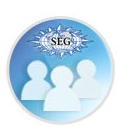News of the week
/As EAGE wraps up in Vienna, the spring geoscience convention season is now over for the big international petroleum geoscience societies (other recent conferences included AAPG, SPWLA, and Canada's GeoConvention).
Hammer, hand-lens, notebook, Twitter
A feature of this year's meetings has been the growth in Twitter as a news channel. The tweets are split about 50-50 between marketing broadcasts (mostly noise) and geoscientists' own highlights and thoughts (at least some signal). It would be splendid to see more people embrace Twitter as a way to share nuggets of information at big events. Give it a try: start an account and follow a few people. You'll get geoscience goodness from @allochthonous, @clasticdetritus, @rschott, and of course us, @kwinkunks and @EvanBianco.
Geophysics Rocks!
 The International Association of Geophysical Contractors (@geophysicsrocks on Twitter) just launched an outreach website called Geophysics Rocks at the EAGE conference and trade show in Vienna this week. The new website was unveiled to thousands of attendees at the expo when more than 20 participating companies simultaneously played this two-minute video on their booth screens. Talk about a collaborative effort! After it was aired, the video URL was scanable via QR code at every booth that played it.
The International Association of Geophysical Contractors (@geophysicsrocks on Twitter) just launched an outreach website called Geophysics Rocks at the EAGE conference and trade show in Vienna this week. The new website was unveiled to thousands of attendees at the expo when more than 20 participating companies simultaneously played this two-minute video on their booth screens. Talk about a collaborative effort! After it was aired, the video URL was scanable via QR code at every booth that played it.
SEG builds e-Communities
 The Society of Exploration Geophysicists (SEG) has rolled out an eCommunities page to add another dimension to their site. Members and visitors can now build and search online profiles to boost collaboration with other professionals. Is this just another late-to-the-party social network, with a new set of connections to link and maintain, or can it bring something new? It does have one thing going for it: it tugs at our primal urges for attribution and recognition among our peers. Stand out with outstanding content!
The Society of Exploration Geophysicists (SEG) has rolled out an eCommunities page to add another dimension to their site. Members and visitors can now build and search online profiles to boost collaboration with other professionals. Is this just another late-to-the-party social network, with a new set of connections to link and maintain, or can it bring something new? It does have one thing going for it: it tugs at our primal urges for attribution and recognition among our peers. Stand out with outstanding content!
Rock Solid Images praised for rock physics atlas
Rock Solid Images (RSI) have compiled a 90-well Rock Physics & Seismic Response Atlas in support of a new licensing round in the Barents Sea. The report was announced in April and RSI has reported pre-orders of $600k ahead of its July release. The Atlas contains a catalog of forward modeled seismic responses with an emphasis on fluid substitution and saturation effects. The Atlas embodies a novel approach to setting standards of communication and knowledge across a basin. It will place RSI in a good position to sell advanced technologies to, and innovate for, their clients. Clever.








 Except where noted, this content is licensed
Except where noted, this content is licensed